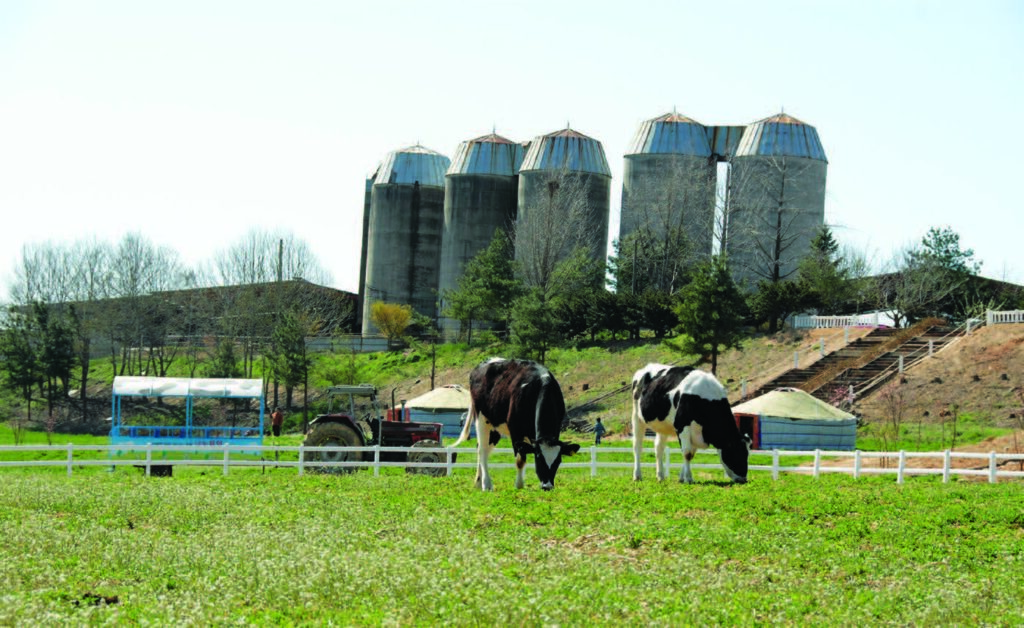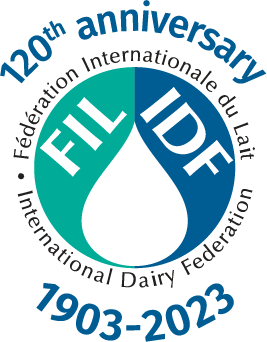Share this page


Alignment with SDGs
AUTHOR
Byung Gab Son Korea Dairy Committee • IDF Korea
Overview
With the global warming, abnormal climate such as heat wave, heavy snow, floods are happening all around the world. In Korea with high proportion of fossil fuel use and manufacturing business, the average temperature has rose by 1.4℃ in last 30 years that the warming has been expanding fast.
Meanwhile, it had been emphasized that as a responsible member of the international community, Korea should also be part of the global action that 2050 Carbon Neutral Plan was announced in October, 2020.
In line with this trend, ESG (Environmental, Social and Corporate) governance has emerged as an essential and key value in corporate management worldwide that not only the dairy but also the livestock sector are also joining this vision. Accordingly, major dairy industries are also taking the lead in realizing sustainable dairy sector citing their own distinct ESG visions and goals.
Objectives and moving the wheel
First of all, the nation’s largest dairy cooperative newly launched “ESG Committee” in 2021 to strengthen ESG focused management. Accordingly, under the philosophy of “For a healthy world with milk”, carbon emission reduction plan has been announced from raw milk production to the stages of distribution and consumption. As a part of its efforts to reduce carbon emission, the cooperative has introduced ‘Green Label’ and to practice carbon neutrality in daily basis, it collects milk carton packs to recycle. In addition, it is expanding the investment to facilities for energy saving and recommending the use of multi-use cups or recycled papers within the cooperative. It also supports the education program on ESG governance to address the problems of methane gas generated and accumulated from the livestock environment. The cooperative also plans to make a further investment in eco-friendly facilities and animal welfare in the entire dairy chain.
Another largest dairy company is also taking the lead in carbon neutrality by adopting ESG governance. In particular, it plans to reduce greenhouse gas emissions by 10% in 2025 compared to 2021 by establishing mid and long term environmental goals and is setting detailed plans to improve energy efficiency at workplaces. As a part of these efforts, the company plans to reduce mobile combustion by developing and expanding the use of renewable energy, optimizing transportation routes and replacing to eco-friendly vehicles. In addition, it conducts various campaigns such as encouraging the use of eco-friendly shopping bags, participating greenhouse gas reduction pledges to fight against climate change. A livestock related organization also announced its plan to complete carbon neutral by 2050 in the manufacturing process under the vision of sustainable livestock sector along with ESG governance and practicing carbon neutrality through energization of livestock manure, low carbon feed and development of methane reduction feed.
In an effort to achieve this, it aims to create low-carbon specification management and eco-friendly livestock by developing low carbon feed and reducing odours along with creating resource and energy facilities and smart manufacturing processes. In addition, use of renewable energy and eco-friendly fuels are also being promoted that it is expected that 80,000 tons of greenhouse gas would be reduced by 2030.


Moving forward
At the end of 2021, Ministry of Agriculture, Food and Rural Affairs has set “2050 Agri-food Carbon Neutral Strategy” to achieve the national carbon-neutral goal and convert existing high-input agriculture practice into low input and carbon structure to strengthen the basis of greenhouse gas reduction in the agriculture sector.
Accordingly, it plans to distribute so called DNA (Data, Network and AI) based precision agriculture technologies to as much as 60% of all farms by 2050 and will push forward for R&D projects to secure future technologies such as intelligent agricultural machinery and robots starting from 2024. As an effort to reduce greenhouse gas, it plans to expand eco-friendly agriculture area up to 30% of the total cultivated area by 2050 along with strengthening soil management and improving soil storage capacity.
In particular, greenhouse gas in the agriculture sector is inevitably caused by chemical fertilizers and livestock feed used in rice cultivation and livestock breeding processes so it plans to reduce it as much as possible by water management and low methane feed to minimize the negative impact on food security.’
Moreover, the livestock sector plans to expand supply of low-methane feed, improve livestock productivity through scientific based management using ICT technology, increase the proportion of livestock manure purification and reduce greenhouse gas emission from livestock manure by 11% compared to 2018.
“Lead Net-Zero Dairy and Livestock sectors to fight climate change through Environmental, Social and Corporate Governance.
Byung Gab Son Tweet






